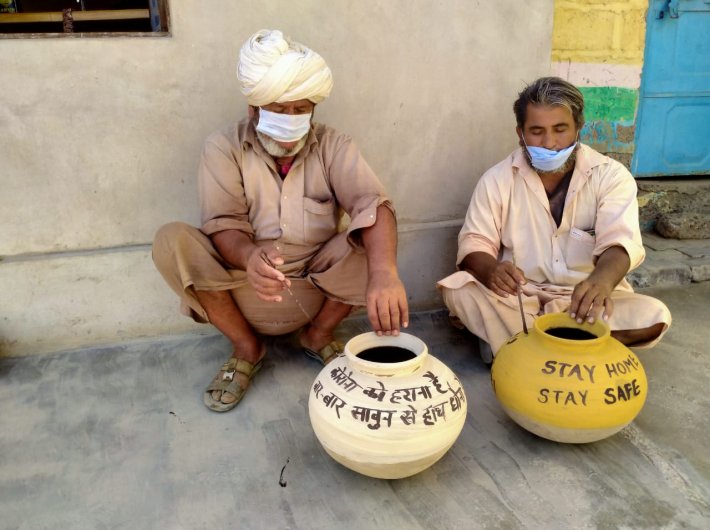The World Bank has come to the aide of the government of India for an ‘Accelerating India’s COVID-19 Social Protection Response Programme’ that will support the country’s efforts to provide social assistance to the poor and vulnerable households who are severely impacted by the Covid-19 pandemic.
With an agreement signed on Friday for $750 million of the $1 billion proposed for social assistance, the total commitment from the Bank towards emergency COVID-19 response in India rises up to $2 billion. A $1 billion support was announced last month towards immediate support to India’s health sector.
This new support will be funded in two phases – an immediate allocation of $750 million for fiscal year 2020 and a $250 million second tranche that will be made available for fiscal year 2021.
The agreement was signed by Sameer Kumar Khare, additional secretary, department of economic affairs, ministry of finance, and Junaid Ahmad, country director, India, for the World Bank, an official note said.
Khare said that a strong and portable social protection system is critical to carry vulnerable households through the current and future crises. This programme will expand the impact and coverage of India’s social protection system by helping vulnerable groups access more social benefits directly and across the country.
The first phase of the operation will be implemented countrywide through the Pradhan Mantri Garib Kalyan Yojana (PMGKY). It will immediately help scale up cash transfers and food benefits, using a core set of pre-existing national platforms and programmes such as the public distribution system (PDS) and direct benefit transfers (DBT); provide robust social protection for essential workers involved in Covid-19 relief efforts; and benefit vulnerable groups, particularly migrants and informal workers, who face high risks of exclusion under the PMGKY. In the second phase, the programme will deepen the social protection package, whereby additional cash and in-kind benefits based on local needs will be extended through state governments and portable social protection delivery systems.
Social protection is a critical investment since half of India’s population earns less than $3 a day and are precariously close to the poverty line. Over 90 percent of India’s workforce is employed in the informal sector, without access to significant savings or workplace based social protection benefits such as paid sick leave or social insurance. Over 9 million migrants, who cross state borders to work each year, are also at greater risk as social assistance programmes in India largely provide benefits to residents within states, without adequate portability of benefits across state boundaries. Importantly, in an urbanising India cities and towns will need targeted support as the country’s largest social protection programmes are focused on rural populations.
Junaid Ahmad said that the response to the Covid-19 pandemic around the world has required governments to introduce social distancing and lock downs in unprecedented ways. These measures, intended to slow down the spread of the virus have, however, impacted economies and jobs – especially in the informal sector. India with the world’s largest lockdown has not been an exception to this trend. In this context, cash transfers and food benefits will help the poor and vulnerable access a ‘safety bridge’ towards a time when the economy will start to revive.
The programme will create a system that will strengthen the delivery of India’s safety nets program. It will:
• Help India move from 460-plus fragmented social protection schemes to an integrated system that is fast and more flexible, acknowledging the diversity of needs across states;
• Enable geographic portability of social protection benefits that can be accessed from anywhere in the country, ensuring food, social insurance and cash-support for all, including for migrants and the urban poor; and
• Move the social protection system from a predominantly rural focus to a pan national one that recognizes the needs of the urban poor.
Ahmad said that the Covid-19 pandemic has also put the spotlight on some of the gaps in the existing social protection systems. This programme will support the government of India’s efforts towards a more consolidated delivery platform – accessible to both rural and urban populations across state boundaries. The platform draws on the country’s existing architecture of safety nets – the PDS, the digital and banking infrastructure, and Aadhaar – while positioning the overall social protection system for the needs of a 21st century India. Importantly, such a system will need to leverage India’s federalism enabling and supporting states to respond quickly and effectively in their context.
Of the $1 billion commitment, an immediate allocation of $750 million for fiscal year 2020 of which $550 million will be financed by a credit from the International Development Association (IDA) – the World Bank’s concessionary lending arm and $200 million will be a loan from the International Bank for Reconstruction and Development (IBRD), with a final maturity of 18.5 years including a grace period of five years. The remaining $250 million will be made available after June 30, 2020 and would be on standard IBRD terms. The programme will be implemented by the finance ministry.
